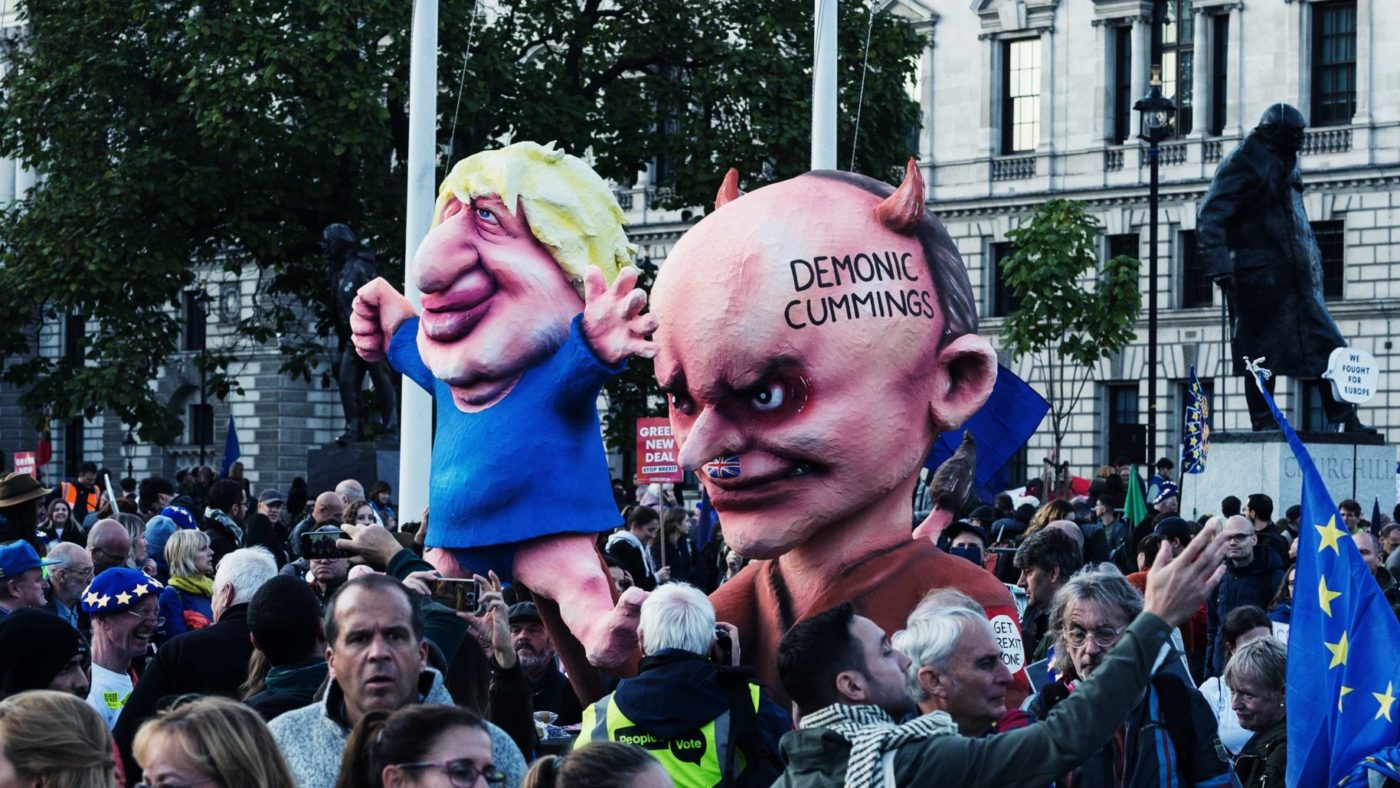‘A shadowy global operation involving big data, billionaire friends of Trump and the disparate forces of the Leave campaign influenced the result of the EU referendum.’
That was how a lengthy Observer article in May 2017 presented the work of Cambridge Analytica in a piece entitled ‘The Great British Brexit Robbery’.
The conspiracy theory unravelled quite spectacularly this week, as an inquiry by the Information Commissioner’s Office confirmed that the now defunct company had little to do with the Brexit campaign.
What’s more, the ICO concluded that CA had not, in fact, hit on some kind of data alchemy that could turn the lead of Facebook Likes into the gold of votes. The company only ever offered “well recognised processes using commonly available technology”, none of it much more sophisticated than what the Obama campaign was doing back in 2008.
We didn’t need to wait until now to find this out. Well before that Observer piece had gone to press, for instance, the US academic Dave Karpf wrote that CA was engaged in little more than “the time-honored Silicon Valley tradition of developing a minimum viable product (vaporware, essentially), marketing the hell out of it to drum up customers, and then delivering a much more mundane-but-workable product”. Its promise of near-magical psychometric testing to persuade voters simply didn’t stack up, no matter how many ‘data points’ the company claimed to have amassed.
Reading them now, the Observer‘s many breathless reports on CA – which won journalist Carole Cadwalladr an Orwell Prize – look comically overblown, with disparate bits of information flung at the page in the hope that a grandiose conspiracy involving Trump, the Russians and Brexit emerges. Yet the real prize – proving that it had all been a great con – remained frustratingly elusive. Accusations of collusion between Vote Leave and Leave.EU, despite the principals of the two campaigns despising each other, point to just how out of whack this version of events really was.
And if Trump and Brexit were linked, it was mainly in the minds of their vanquished opponents. On both sides of the Atlantic the excruciatingly patronising idea that victory was built on dim-witted voters being duped by clever ads became all too commonplace.
In Trump’s case, it’s not like you have to look too hard for better explanations: the missteps of the Clinton campaign, her toxicity to many voters, the vagaries of the electoral college system and, in the longer term, the hollowing out of working-class communities.
As for Brexit, the idea CA had somehow swung the referendum always relied heavily on a particularly Remain-friendly interpretation of the final result, in which Leave snatched victory at the last.
More likely is that Remain started further behind than its eventual four-point margin of defeat and spent the campaign trying to catch up. And if anyone was going to change their mind at the last minute, it was probably the voters scared into voting for the status quo by George Osborne’s promises of a fiscal apocalypse.
The real referendum scandal was always hiding in plain sight and had nothing to do with Arron Banks, Dominic Cummings, Ze Russians, or any of the other spectres summoned by embittered Remainers. It was the Government spending £9 million of public money, shortly before campaign spending limits kicked in, on a pro-EU mailshot to every household in the country. If you wanted a definition of ‘unfair advantage’, what could be clearer?
In any case, the back-and-forth about the campaign is not nearly as interesting as what Brexit revealed about the UK and its voters. That is a story of how demographic shifts, immigration and a massive rise in the number of graduates have transformed the British political landscape. It is expertly told by Maria Sobolewska and Rob Ford in their new book Brexitland, which will be the subject of a CapX Live this Thursday – details on how to sign up will be in tomorrow’s newsletter and on the website.
Click here to subscribe to our daily briefing – the best pieces from CapX and across the web.
CapX depends on the generosity of its readers. If you value what we do, please consider making a donation.


